Hitman Season 2 - "I would like a game where all levels are ups!" says IO Interactive's creative director
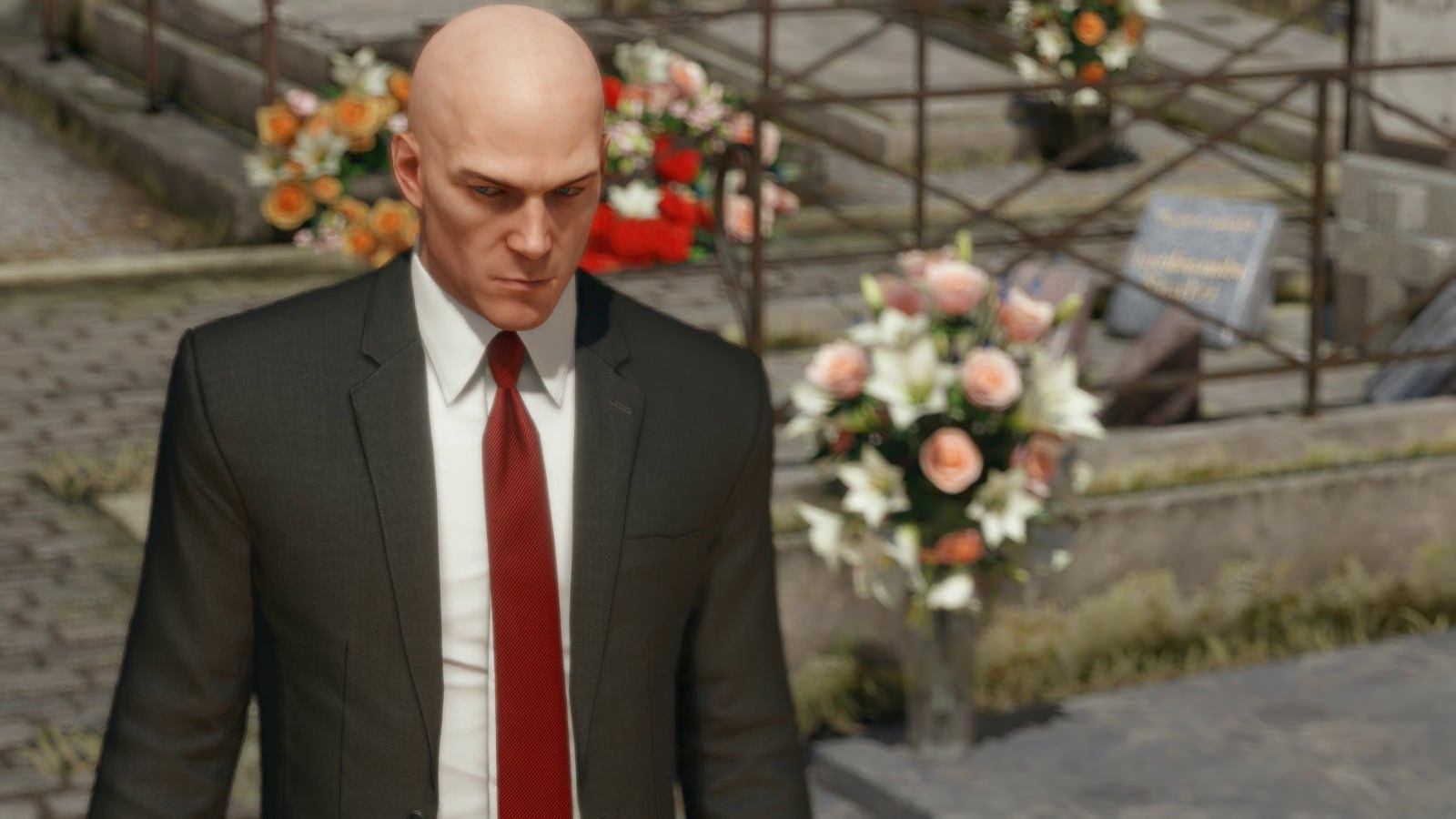
This interview was conducted by Official PlayStation Magazine
Despite bagging a top ten spot in our 2016 Game Of The Year list, Hitman isn’t quite done. Just before Christmas we were surprised by the festive feast of a Home Alone-inspired Paris makeover (the two targets being the hapless goons from said film), and on 31 January, the same day as the game’s disc release, Hitman received a third Bonus Episode.
It’s called Landslide, and it sees Agent 47 returning to series high-point Sapienza to execute a corrupt politician. Just like the former two Bonus Episodes, the add-on will give its level a visual overhaul: this time around the sleepy Italian town is playing host to a concert in the piazza at sunset. Cue up all the ‘Murder On The Dancefloor’ gags...
So with the sun about to set on the first season, it’s time we catch up with IO Interactive’s studio creative director, Christian Elverdam, to see how the studio behind Hitman’s reinvention feels the project has evolved so far, and discover what’s in store for Season Two of the Danish developer’s ever-growing World Of Assassination.
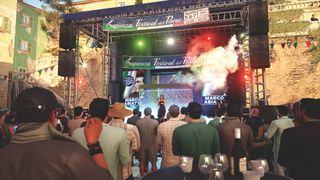
OPM: Looking back, how happy are you with the complete first season?
Christian Elverdam: I’m really happy. There was a bit of skepticism about the episodic format and we made a hard bed for ourselves with the way we went back and forth in terms of what would be in the initial package. This was the first time we did our version of a Hitman sandbox in ten years, and we had no idea how that would fare for an extended period of time.
I feel the intro was perfect. Sapienza stood on its own, and if we’d had a bigger starter package with more content in it we’d have the same problem as our other games, where people played them once and never touched them again. Watching how everybody was on the same page and finding everything together has been amazing. It’s exactly how I dreamed it would be. It fit the fantasy of being a hitman; every now and then getting a new assignment.
Sign up to the 12DOVE Newsletter
Weekly digests, tales from the communities you love, and more
Then seeing how Elusive Targets have had an impact... Traditional Hitman was always this Groundhog Day mastering of missions by replaying them until you were God. The Elusive Targets were a bold statement of the opposite: “You will never master this hit because it will only be there once.” That then gave a really intense moment of the assassination fantasy. A lot of hardcore modes are about “when do I fail?” but here it’s pretty unique because the moment will not come back. It was super-well received, albeit sometimes with agony. But that comes with the territory – I like that it’s ‘play for keeps’. It’s honest emotion.
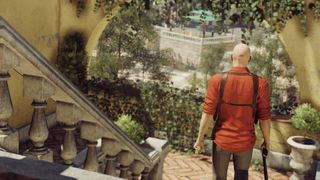
OPM: We noticed you extended the Elusive Target duration as the season progressed...
CE: Yeah. We extended them because we saw it wasn’t a cool parameter to say: “Oh, you had a weekend in the countryside? Well, you missed out!” It didn’t really take away from the excitement of a time-limited target. If it starts to feel like you could do it whenever then we’d rein it back, but it hasn’t. Elusives will continue for a while longer. There will be more!
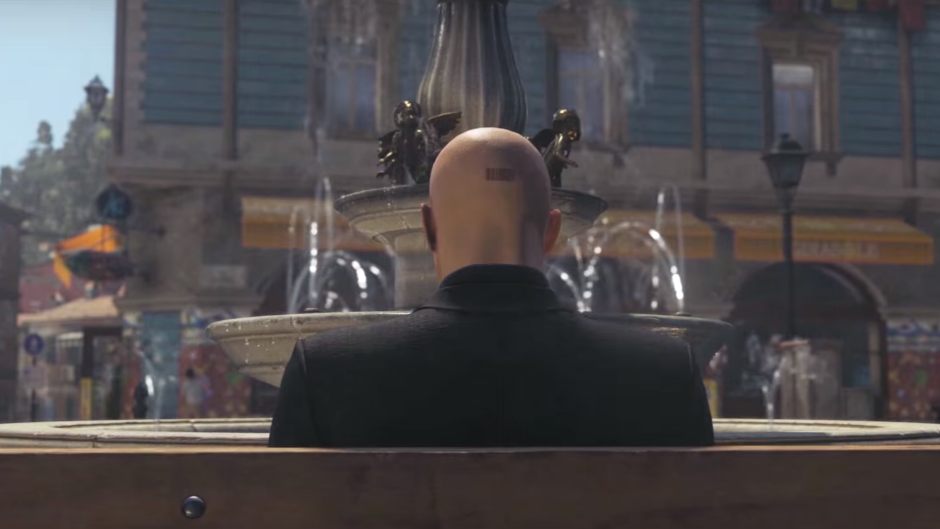
OPM: When you see people using exploits to kill Elusive Targets in just a few seconds, do you feel the need to step in and fix it?
CE: In general we have a lot of hardcore fans saying the game is too easy, but I think for many, many people it’s brutally hard. But for the Elusive Targets I love this! Our game is meant to be exploited. It’s not an eSport. It’s a sandbox. You’re supposed to have fun with it. Some people complete Elusive Targets by watching other people do a YouTube video of it, and I think that’s great because that’s the community working together. But then you have the purists who will only watch the briefing video and just go in on their own terms.
Our game is very much a case of you figuring out how you want to enjoy it. If you want to use the crazy exploits, that’s fine. It will take you hours to figure them out unless you use guides. But as long as people are having fun, that’s why we build the levels.
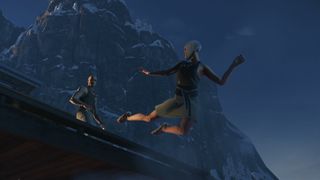
OPM: Do you have a favourite Season One kill?
CE: I cannot pick from the ones we did! I can’t pick a favourite. I was laughing at the yoga kill from Hokkaido because I thought it was hilarious, but I was doing that with lots through the season. Also in Hokkaido, Helmut Kruger made a comeback, and that’s because we were so surprised that he became the poster child of Paris. One thing we learned pretty significantly is that some of our best moments aren’t assassination moments; it might be walking onto a catwalk, simply because it’s a cool experience. Isn’t that weird? In a game about assassination and silent assassins, one of the marquee experiences is: “Do you want to be a male model?” People were like: “YEAH!”

OPM: Was that the biggest surprise?
CE: [I’d say it was] understanding, truly, how crazy-diverse our group of players is. That has been profoundly reaffirming. I honestly didn’t know until I saw people doing some pure, crazy skills... I saw a ninja playthrough of a guy doing the Silent Assassin Suit Only in Hokkaido, dressed as a ninja – so he doesn’t have any outfits to open doors. He stealths his way through, and then sneaks into an illegal area where the door only opens from one side. Then he jams his katana into the door because our physics mechanics allow for doors to be blocked. He stops the door, does the kill, then sneaks back, takes back the katana and escapes.
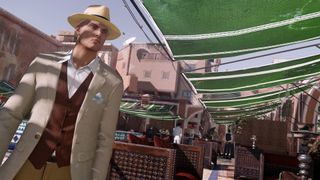
OPM: You must be pleased with the overall reaction to the series?
CE: Two years before launching Paris, one of the big things for us was that we wanted to do a disguise system that was different. We had some good clues from Blood Money and Absolution, but we hadn’t hit the nail on the head. When Paris was out it was pretty clear that [system] was solid – it was working and didn’t need fixing. It might seem basic, but when you’re launching something you don’t always know how it’s going to pan out. That meant we weren’t afraid to tamper with the disguise system in Hokkaido – it felt like a cool thing to do. A fun and surprising diversion for players. If our disguise system had been met with criticism initially, I don’t think Hokkaido would have had the same playfulness.
If you ask somebody who was a fan of Hitman: Blood Money about what makes Hitman so great, it wouldn’t be hard for them to talk about the non-linearity and about finding all these things to do. But if you look at the reality of it, a lot of people jumped into Blood Money, played it a little bit, didn’t really get above critical mass and just left the game.
Absolution tried to solve that problem by making the game simpler, but then people couldn’t find any depth. But now we can see new players who’ve been spending a lot of time in Paris and Sapienza due to the episodic release, getting a little bit of guidance from the Opportunities, and it just clicking. They say: “Ah, that’s the fantasy! I get it!” We still need to figure out how to balance that. For as long as we make this game, we are walking under this knife edge of how much we assist you and how much of it is you calling the shots.
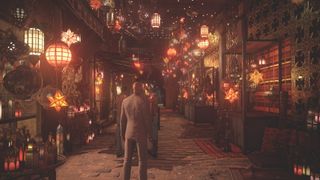
OPM: The episodic nature has meant every level has been scrutinised to an unprecedented degree. Do you need to be mindful of that when you saw the reviews roll in for, say, Marrakesh versus Sapienza?
CE: We do a lot of testing of our levels so we have a pretty good idea of roughly how levels will come out. We tried some things with Marrakesh where some areas were a bit closer to Absolution, and a bit more restrictive. But anything coming out after Sapienza was going to have a hard time! I’m a little sad because in terms of the feel of the level and the military coup I think Marrakesh is super-interesting.
It was good learning experience. People are obviously down in the studio if your level doesn’t get a perfect reception, but it’s par for the course. There’s no doubt in my mind it wasn’t as strong as Paris or Sapienza.
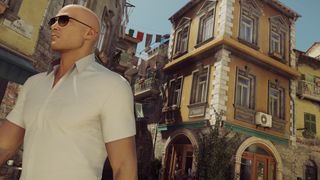
OPM: But surely Season Two can’t just be six Sapienzas! You need ups and downs...
CE: I don’t think you need ups and downs in terms of quality – I would like a game where all levels are ups! There are many things like themes, size and the feel of a level that can be vastly different from one level to the next. We don’t need to make the levels identical: if you think about it, Paris and Sapienza are two open levels, with widely different feelings. Hokkaido is a pretty open but super-condensed map.
In terms of game mechanics it’s definitely possible to do a variation without making something way better or way worse. The baseline must be if you’re spending a month inside a level it has to be worthwhile and it has to keep surprising you, because people will dig down and find everything.
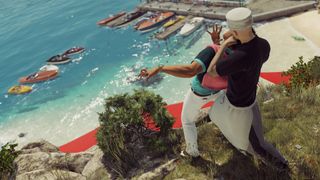
OPM: Will small levels the scale of A New Life ever return outside of the training zone?
CE: We don’t know yet. In my mind Hokkaido is pretty small. If you measure it in square metres it’s not that huge, but it just goes to show what you can do in the way you construct a level. Most people would be surprised to know that Paris is the largest when measured in pure square metres, even though Sapienza and Colorado feel huge. So there’s also a huge mind-trick going on when you think about what makes a big level. If it’s the intimacy of a house in the suburbs, it’s not about size but the complexity, with a lot of moving parts and lots to discover. That needs to be the key ingredient.
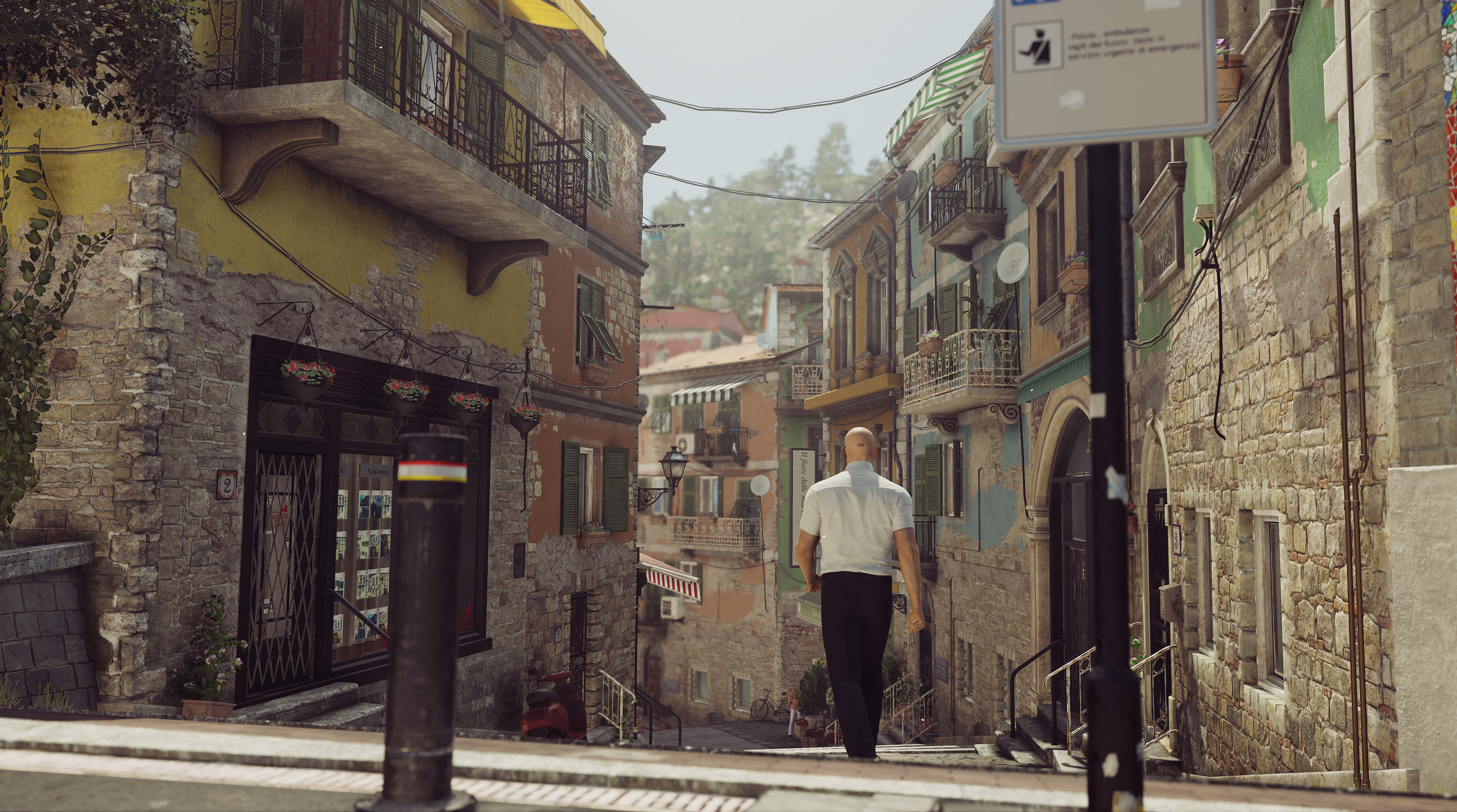
OPM: So what will we get in Season Two?
CE: Well, I can tell you that we always wanted an ever-expanding world; this feeling that you travel to locations for assignments. There would be an overarching story that spans seasons, and the story of Season One is just an opener that’s established some pretty central characters.
Now we’re asking ourselves: “What worked?” For the teams that did Sapienza, Marrakesh, Hokkaido and Colorado... it’s a good time for them all to reflect and see what clicked. They’ve now watched other people play their levels and have a wealth of emotional data, and actual metrics about where players went and what they did. I feel really good that we’re now looking at a ton of stuff that worked, and are asking “how can we make that better?” rather than asking “how can we fix that?”
A lot of uncertainty and questions that we had before Season One we now don’t have for Season Two, which gives us some freedom.
This article originally appeared in Official PlayStation Magazine. For more great PlayStation coverage, you can subscribe here.
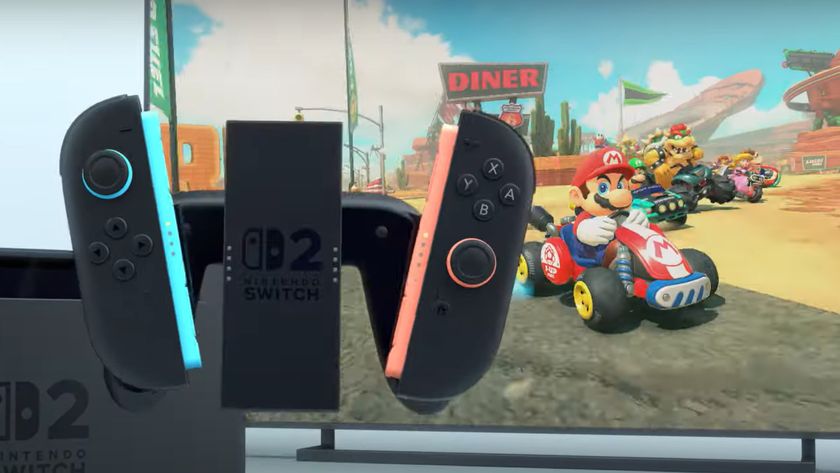
Ex Nintendo PR managers say the Switch 2 generation is likely to see the retirement of "several of the major developers at Nintendo who we have known for 40 something years"
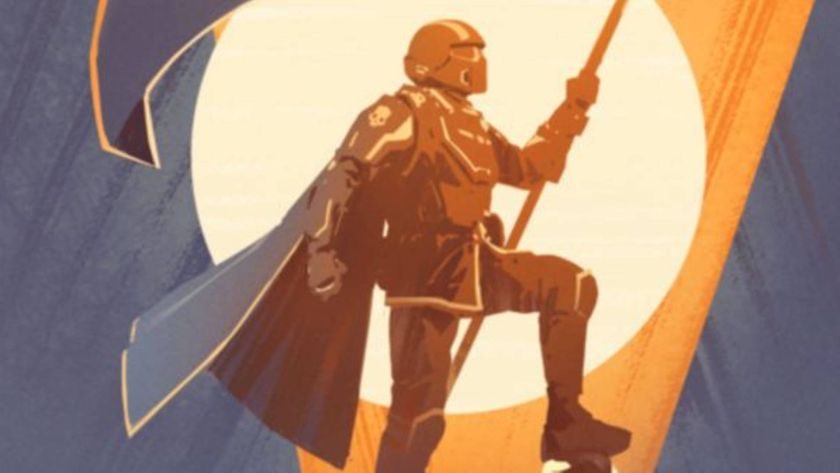
Helldivers 2 CEO says industry layoffs have seen "very little accountability" from executives who "let go of one third of the company because you made stupid decisions"

Spider-Man: Brand New Day - How Peter Parker and Mary Jane's break up led to one of the wall-crawler's most transformative comic eras









